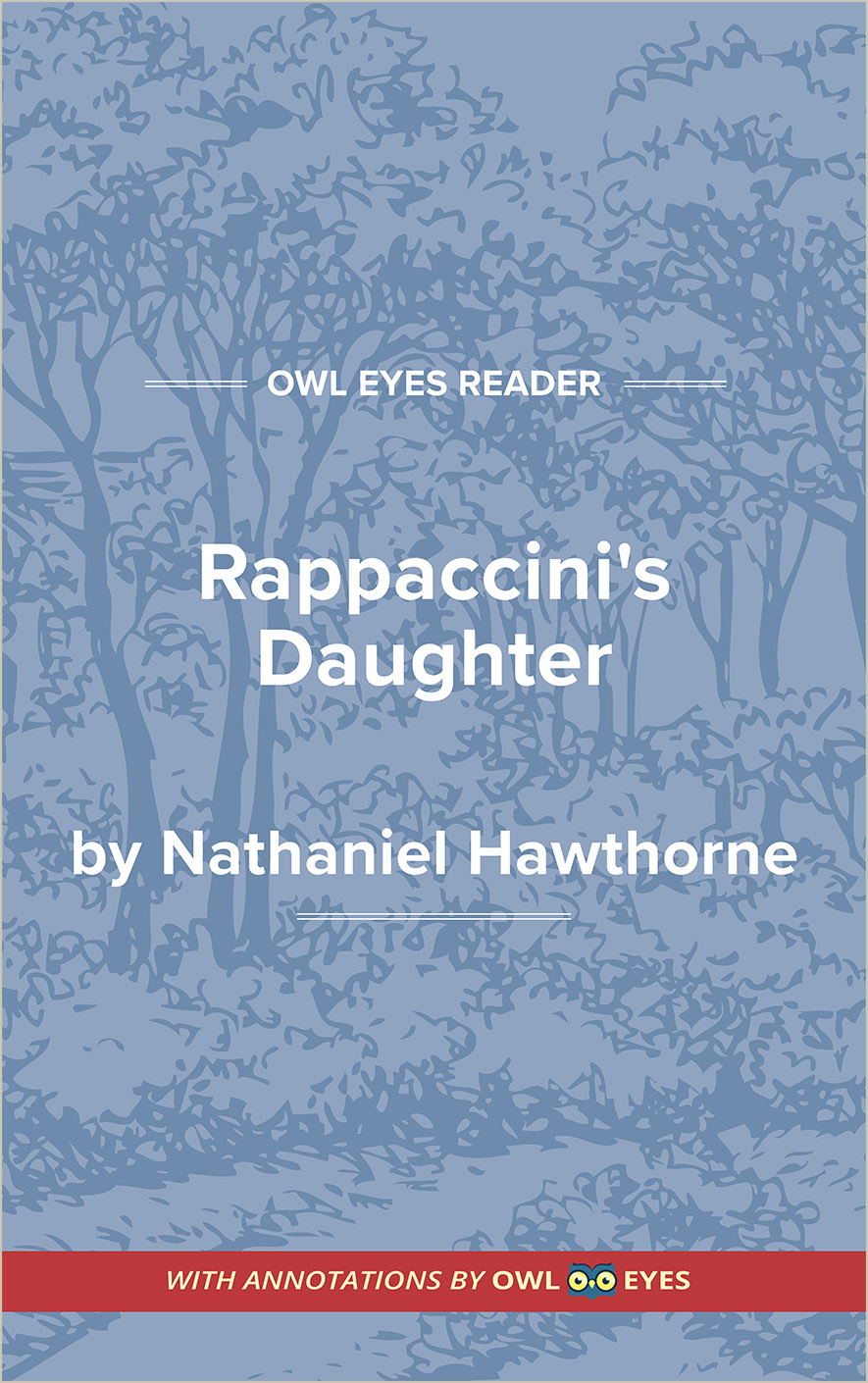Study Guide
Analysis Pages
Summary
Giovanni Guasconti, a young man from Naples, comes to Padua to study medicine. He rents a gloomy room in a once noble house. The house was built by a defunct family, one of whose members was a character in Dante’s La divina commedia (c. 1320; 3 volumes; The Divine Comedy, 1802), where he was portrayed as suffering in the Inferno. Giovanni’s room looks down on a lush garden, centered on a still gurgling fountain and a shrub full of purple flowers. Lisabetta, the old woman who sets up the room, tells the young man that the garden belongs to the eminent scientist Giacomo Rappaccini.
Rappaccini, aging and scholarly, appears in the garden, intently studying the plants as if probing their essences. Wearing gloves to avoid contact, he does not sniff the flowers, reversing the approach people have brought to gardening since Adam and Eve. Approaching the luxuriant central plant, Rappaccini covers his nose and mouth with a mask, but these precautions prove inadequate. He backs off and, in the faltering voice of someone internally ill, calls his daughter Beatrice. She responds in a rich, sunny voice that strikes Giovanni as purple or crimson. As beautiful as a perfect day or a blossom, splendidly garbed like the best of the flowers—to which she seems a sister—Beatrice helps her father. Her magnificence and healthy energy are held together by a wide belt called a virgin zone, commonly worn by maidens. Beatrice especially loves the central plant, which she says rewards her attention with kisses and perfume.
That night, Giovanni dreams of Beatrice and the flowers. Though obviously different, they seem very much the same in the dream, mysteriously dangerous. The dread night fades. Trapped as he is in Padua, Giovanni decides that the garden will serve to maintain his relationship to nature.
Armed with a letter of introduction, Giovanni pays a visit to his father’s old friend Professor Pietro Baglioni at the medical school. When Baglioni hears the name of Giovanni’s neighbor, he asserts that, though Rappaccini is as knowledgeable as any faculty member (with one possible exception), he is reprehensible: Science is more important to him than his patients, whom he uses experimentally. Rappaccini thinks all medicines fall into the realm of poisons produced by plants and that any cures he realizes are accidental products of his experiments. When Giovanni mentions Beatrice, Baglioni avers that, educated by her father, she is most knowledgeable but not worth their attention. He tells Giovanni to finish drinking his Lacryma, and they part.
Chancing on a flower shop on his way home, Giovanni buys a bouquet. Looking down at Beatrice in the garden, he admires her beauty but is horrified when sap from a flower she plucks kills a lizard and again when Beatrice’s breath kills an insect that flutters too close. Attracted, too, Giovanni throws Beatrice the bouquet. She graciously accepts it, but as she rushes off it appears to wilt. Beatrice, like her flowers, is attractive and dangerous.
Giovanni feels both love and horror. By chance, he meets Baglioni, whom he has been trying to avoid. While they are talking, Rappaccini passes. The scientists exchanges uncomfortable greetings, and, when Rappaccini is gone, Baglioni observes that the expression on Rappaccini’s face revealed that Giovanni is the subject of an experiment. Insulted, Giovanni leaves, but Baglioni, valuing Giovanni as the son of an old friend, resolves to help him, thinking to use Beatrice to free him.
When Giovanni arrives home, Lisabetta tells him of a private entrance to the garden from their building. Giovanni gives her a gold coin, and she leads him to it. It occurs to him that Lisabetta may be part of an intrigue, but he enters anyway. The plants fascinate him. Many seem artificial, as if they were products of a depraved human intelligence. The few he recognizes as natural are poisonous.
While Giovanni is still looking around, Beatrice enters. She professes to know no more about...
(The entire page is 1,414 words.)
Owl Eyes subscribers get unlimited access to our expert annotations, analyses, and study guides on your favorite texts. Master the classics for less than $5/month!

